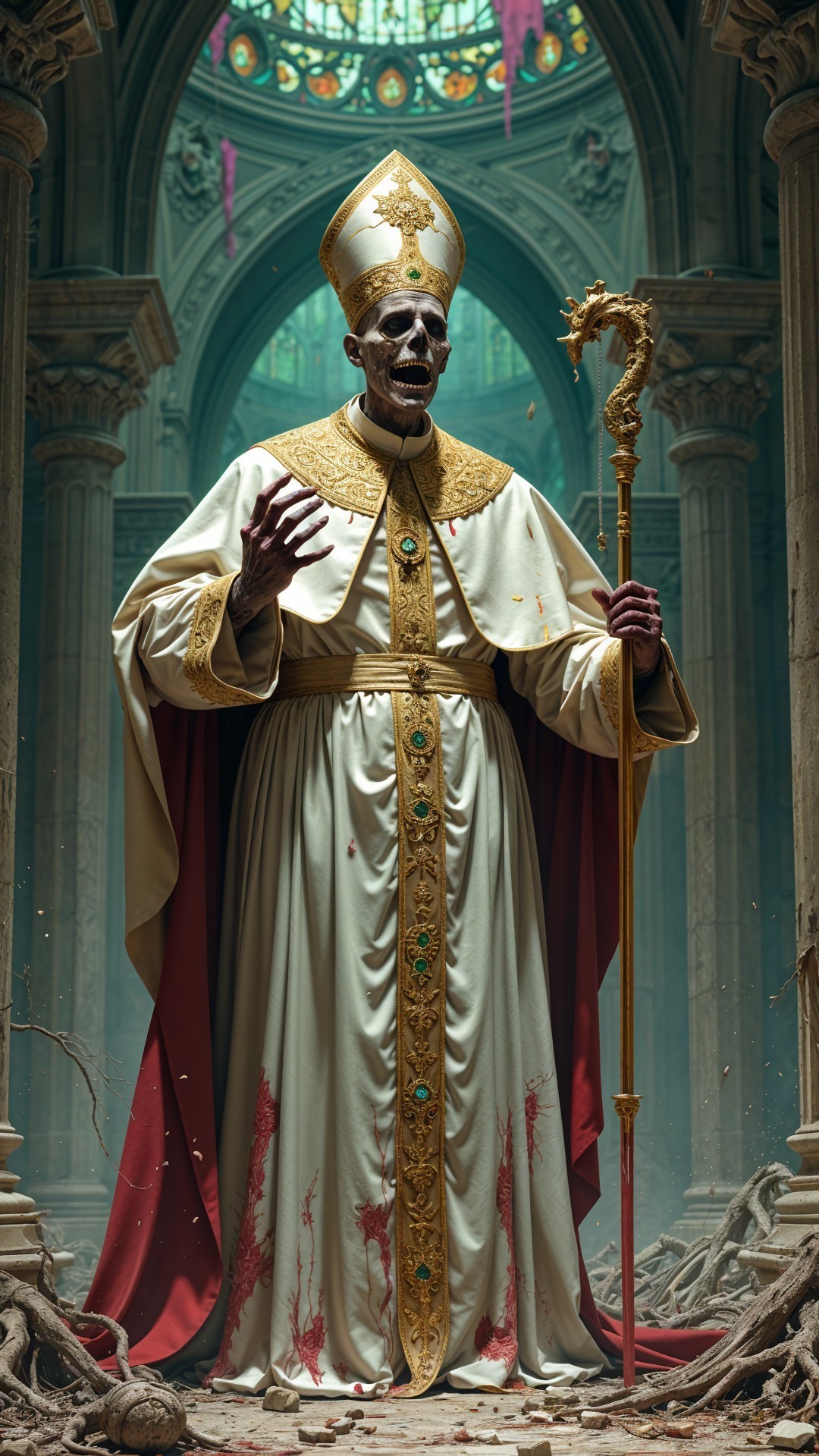Comments
Loading Dream Comments...
You must be logged in to write a comment - Log In

 Artist
Artist
The Catholic Church has long claimed to stand with the poor, the humble, and the marginalized, building its identity on the Gospel narrative of simplicity and sacrifice. Yet its institutional reality is one of immense wealth, gilded palaces, priceless art collections, and a clerical elite living in comfort far removed from the struggles of ordinary people. This contradiction between doctrine and practice is not an accident of history, but the very foundation of its hypocrisy.
The clergy, from the lowest ranks to the papacy itself, preach austerity, humility, and detachment from material possessions, while simultaneously indulging in the luxuries of power and influence. The Vatican, adorned with gold and marble, symbolizes not the kingdom of God on Earth but the decadence of a political institution more concerned with maintaining authority than embodying its professed values.
The moral decay of the clergy is revealed in countless scandals: corruption, abuse of power, financial manipulation, and the systematic silencing of dissent. These are not isolated missteps but symptoms of a deeply entrenched culture of privilege and impunity. The very men who call themselves shepherds of souls too often behave like princes guarding their thrones, using fear, guilt, and ritual to preserve their dominion.
The papacy, in particular, embodies the sharpest of these contradictions. Proclaiming itself the successor of Peter, the humble fisherman, it has historically aligned itself with emperors, kings, and dictators, consolidating temporal power while speaking of divine love. Its claims of moral authority ring hollow when measured against centuries of complicity in oppression, exploitation, and intolerance.
The falsity lies in the rhetoric of service contrasted with the reality of domination. The Church presents itself as a moral compass, yet its hierarchy frequently bends truth to preserve its image and authority. It extols poverty as a virtue, but only for others. It preaches humility, but not for those enthroned in scarlet robes. It proclaims compassion, yet condemns human variety, diversity, and freedom of thought.
To expose this hypocrisy is not to deny the faith of individuals who seek meaning and hope, but to reject the institutionalized machinery that masks decadence with sanctity. The contradiction between word and deed is too glaring to be ignored. A Church that claims to embody the truth must first reckon with its own falsehoods, and a papacy that claims moral primacy must confront the rot of its own corruption.